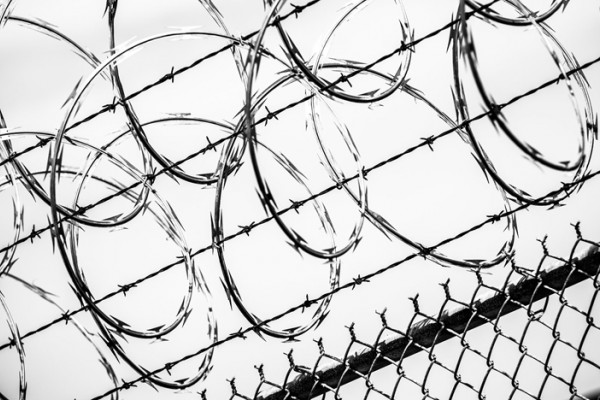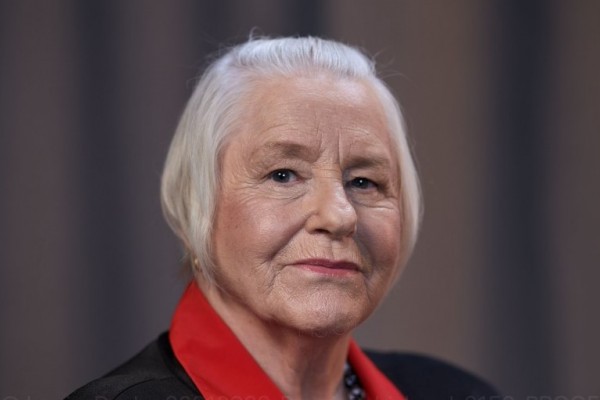Raising Our Voices Against Violence
Listen. Women are speaking across the land, and around the world. We want to be safe. We want our sisters to be safe. We expect justice in our communities. Will anybody listen?
On International Women’s Day, 2006, thousands of indigenous women in Canada live in substandard housing, without clean drinking water, income security, or any expectation of safety. Women still have to plead or rage or cry to draw attention to these facts. Our governments and community leaders respond with lip service, not action.
In October, 2004, Amnesty International published its report, Stolen Sisters: A Human Rights Response to Discrimination and Violence Against Indigenous Women in Canada, as part of a larger, international campaign to stop violence against women. Violence against First Nations, Inuit and Métis women is linked to racial discrimination, but is rarely understood as a human-rights issue. These victims are often forgotten.
Stolen Sisters reports what many of us already know to be true. Indigenous women are the target of hatred and violence because of their gender and race. Indigenous women live on the social and economic margins of society, often in dangerous situations of poverty and homelessness. Canadian police fail to provide an adequate standard of protection for indigenous women. Violence is accepted as normal.
Less than 48 per cent of reported sexual offences result in criminal charges. Many women do not report sexual offences because they don’t want to get involved with the police or believe the police couldn’t do anything about it. The low rate of sexual-offence convictions leads victims and offenders to believe that violent offenders will not face justice, even when crimes are reported and charges are laid.
According to information gathered by the Native Women’s Association of Canada (NWAC), approximately 500 Aboriginal women have gone missing in communities across Canada over the past 20 years. The very fact that the exact number is not known is an illustration of the status of indigenous women. Manitoba’s 1991 Aboriginal Justice Inquiry Report criticized the sloppy and racially biased police investigation that took more than 15 years to lay charges against one of four white men who abducted, sexually assaulted and brutally murdered a 19-year-old Cree woman, Helen Betty Osborne, in 1971. Stolen Sisters reports many similar case studies. Governments, media and society at large pay little attention to these atrocities.
Stolen Sisters
In 2004, NWAC launched its Sisters in Spirit campaign in response to the extreme level of violence and the negligence of Canada’s policy makers and law-enforcement system toward indigenous women. President Kukdookaa Terri Brown urged immediate action, requesting $10 million over two years for research, public education and community-based programs to help marginalized Aboriginal women vulnerable to violence. The initial government response was a commitment of $20,000 to Sisters In Spirit, increased in November, 2005, on the eve of a federal election, to $5 million over five years. This amount falls far short of the need.
The research for Stolen Sisters was conducted mainly in cities in western provinces with a large and growing indigenous population. Women’s experiences of violence on reserves and in northern and rural regions are not adequately reflected. In 2002, the national rate of reported sexual offences was 86 per 100,000 people. That year 596 sexual offences were reported to the police in the Yukon, Northwest Territories and Nunavut, with a combined population of 100,000. And these high numbers don’t tell the full story.
In 1998 in southwest Yukon, Kaska women formed the Liard Aboriginal Women’s Society (LAWS) to address residential school survival and increase Kaska traditional knowledge and healing practices. The colonial experience of indigenous peoples contributes to social injustices today. From early missionary contact until the 1960s, Aboriginal children were forcibly removed from their homes and families and sent away to “residential schools” operated by churches and supported by the Canadian state. At these under-funded institutions children were punished for speaking their “heathen” mother tongues, and were often required to work as servants and labourers, with as little as two hours of schooling per day. Poor diet and housing caused epidemics of illnesses, and severe punishment was imposed for attempting to run away. Reported cases of the endemic physical and sexual abuse of girls and boys attending these schools remain unresolved at a political or judicial level. LAWS works to help indigenous women and communities redress the personal disruption and cultural devastation of such residential school experiences.
Breaking the Silence
Women who speak the truth about violence are safer when others work with them. LAWS received national attention for its public denouncement of the criminal justice system (Al Pope, “B.C. Court Ignores Aboriginal Women’s Pleas,” CD, May/June, 2004). At the Appeals Court, former chief Daniel Morris was sentenced to a brief custodial sentence for a sustained attack on his common-law wife.
LAWS executive director Ann Maje Raider told Canadian Dimension: “People have said they’re glad LAWS spoke out. When it was happening many were fearful and didn’t want to say anything. Since, men have said woman assault is wrong. The media played an important role in telling the story. It was because women’s advocates, northerners, First Nation leaders and Yukon people took a stand against violence that he was held accountable.”
Bringing people who live with violence out of isolation for education and support is a powerful tool for stopping the violence. Ann Maje Raider says there is a silence about violence against women because of fear, shame, denial and the danger of speaking out. “What I feel is the sisterhood provides the safety for women. When groups of women come together with a like idea, there is safety, trust and a sense of belonging. Women are empowered to speak up and support one another. We get together at workshops and events, become stronger and refuse to accept violence.”
There are many barriers to women’s participation. “We have no childcare and no money for childcare, so young mothers who want to attend programs can’t participate. Danger is also a barrier.” LAWS aims to bring a positive voice to the community. “I think just bringing awareness of the high level of violence against women and children has helped. Perpetrators of violence are more conscious of what they’re doing and more willing to get help. The Stolen Sisters report has helped to educate people and bring attention to the problem. The RCMP have to be open to people.”
When more people recognize, respond to and confront violent behaviour in families and relationships the health of the community can improve. If police, social workers, teachers and doctors work co-operatively with indigenous organizations and support human rights, women will be safer. In Watson Lake, says Ann Maje Raider, “LAWS has formed partnerships with community organizations like the Watson Lake Wellness Committee that are working toward the same goal. We see improved relations and increased trust between First Nations and non-First Nations.” LAWS’s work shows the need for a Kaska cultural healing and treatment centre to deal with residential school survival, addictions, the lack of adequate treatment and community well-being. Ann Maje Raider concludes: “It’s a long road, one step at a time.”Te duisim quismodit pratum dolore endre dolorper sit lumsandion hendiam etueros estrud euguero eum venim vullamet, quam do conum iurem dit nulput wismodolum deliquat wiscill uptatin euissi.
This article appeared in the March/April 2006 issue of Canadian Dimension (Women Speaking Out).









